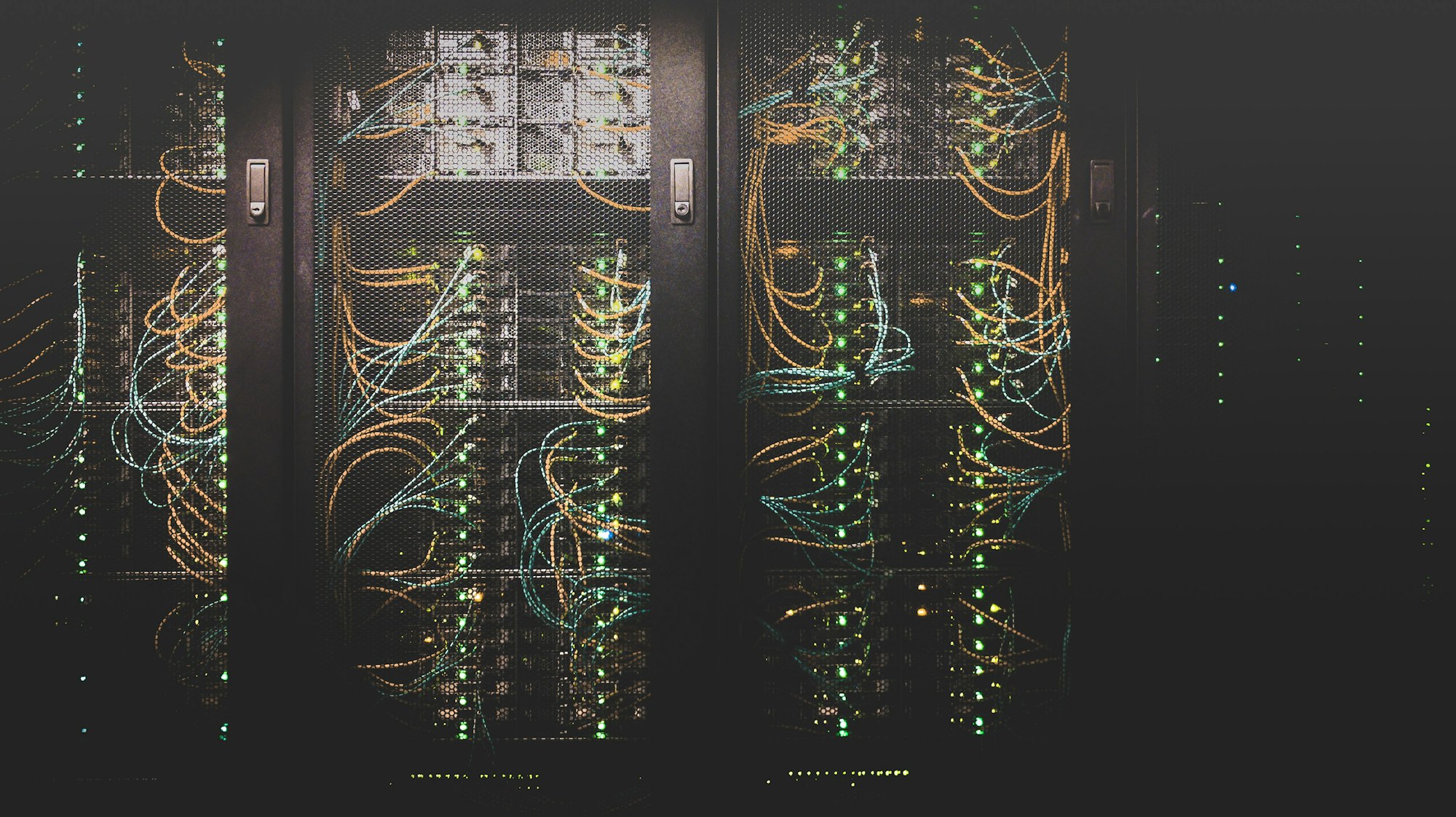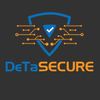How to Protect Your Company's Data on the Cloud: A blog around cloud security

Cloud computing has exploded over the last few years with most businesses by now using cloud services for various aspects of their business. In many ways these cloud services have been a boon for business allowing them to access important information wherever they are and at a much cheaper price than traditional computing. Cloud computing has also opened up new ways to think about security and this blog will discuss some of those.
In this article, you will find some important tips on how to stay on top of the security of your data on the cloud.
Cloud services were the next big thing in computing with everyone dumping their local data servers in favor of cloud providers. The cloud companies promise that your data is secure but..is it?
This blog will help you learn how to avoid some of the pitfalls of using cloud services.
Cloud security is a big problem for many companies. We at DeTaSECURE will discuss the best practices of cloud security and how you can protect against hacks, leaks and other threats. DeTaSECURE will present the top threats facing your company, how to mitigate them and how to do it all without impacting performance.
1. What is cloud security?
Cloud security is a lot more than just encrypting your data before it is put on a cloud server. Cloud security has a lot to do with how you make sure that your data is safe from unauthorized access and what you do if it is compromised. Cloud security is extremely important as your data is now in the hands of a third party, and the security of that third party is just as important as the physical security of your own server. Cloud security also has to take into account that your data is likely to be accessed by parties that you do not know and cannot necessarily trust. Cloud security is about making sure that your data is safe from malicious parties and that you can be notified if it is compromised.
2. What are the main threats to cloud security?
Cloud computing is the next logical step in the evolution of computing since the internet. Cloud computing allows businesses to access information needed to run their business safely and securely. However, because of the way cloud computing works, there are some unique challenges to security that need to be addressed. As cloud computing becomes increasingly popular, the number of threats facing this form of business data will increase. There are several threats that face businesses that use the cloud.
3. How to keep your cloud-based data secure?
Most people use the same password to access multiple accounts such as social media, bank accounts and email. With this, one can easily hack into your cloud-based data and it could be a disaster if the hacker steals the password to your bank account. You could be likely to lose your money and all your hard-earned savings. To keep your privacy and data safe and secure, you should use a password manager. A password manager is a software program that can store all of your passwords in a secure place and fill in your passwords automatically on your behalf.
4. How to protect your cloud-based data from insider threats?
Insider threats are always a concern to any organization’s security team. The primary fear is that someone inside the organization may be stealing data or information. The insider threat can be a trusted employee or even a contractor. There are few ways to minimize the risk of insider threats. However, the best way to minimize the risk of insider threats is to have control of datasets. This can be done by using controls like encryption, access control, and audit. Data encryption will prevent unauthorized access into the data while access control will allow only authorized users to access the dataset. Audit logs can be used to track the activities of the datasets.
5. How do your company's security measures stack up?
We know how important data security is to you and we go to great lengths to maintain it. First of all, we use 256-bit encryption, which is considered unbreakable. This means that even if a hacker gets into your account, he still won't be able to read any of your messages. Next, we store your messages and data on encrypted cloud servers and we keep all private and business data separate. This ensures that if anyone gets into the business data, they won't be able to access your private data as well.
6. What are the best ways to ensure your company's cloud data is safe?
If you are looking for the best ways to ensure your company's cloud data is safe, you are at the right place. A recent survey showed that most organizations are using the private cloud for cost reduction. The need for security must not be neglected when adopting the cloud. To protect your data in the public cloud, there are many things you can do. The most important step is to develop a clear understanding of your cloud security requirements. The most important cloud data protection factor is risk management. We need to do a risk assessment to understand the nature of the data.
7. Can you really trust the cloud?
The cloud is certainly not 100% safe. There are certainly risks involved, but the risks are manageable. However, this does not mean you should not be cautious about what data you store in the cloud. There are various online services that are reliable, but you need to take the time to do the research. You should look for signs of up-to-date security certificates, strong encryption, and things of that nature.
8. How to automate your cloud-based security?
This is a great question, especially for businesses that are running large cloud-based infrastructures. It's not uncommon for companies to accumulate thousands of cloud-based users who are provisioned throughout the enterprise. If you are managing all of them manually, then that can be a huge task. One of the main problems is that even the smallest of changes, like a new user provisioned, can lead to significant amounts of time wasted. Even if an IT administrator is efficient, doing this manually can consume hours out of their week.
Our clients use and recommend GETSecured for cloud-based security that automatically monitors and warns you about threats of cloud-based security threats.
If your company is using cloud computing then it is important that you take the correct measures to ensure that your company has the best security.
There are a number of ways to keep your cloud-based data secure with most requiring very little from you. You can also ensure that your cloud-based files are secure from insider threats.
Cloud computing has been around for a few years now and it is a very useful tool for a lot of businesses. It allows a company to host a lot of their applications on a remote server that they can access from anywhere. These applications can be accessed by the staff of that company with little to no downtime. While the cloud has many benefits it also brings with it some security risks. These risks can be managed by following some of the advice given above.
Accomplished cybersecurity expert, ethical hacker, trainer, entrepreneur, and advisor. Having 16+ years of experience in PwC, eBay/PayPal, Walmart Labs, Thoughtworks, etc. taking care of enterprise cybersecurity practices and global delivery. Running my own startup as the co-founder and CTO for the last 5+ years. Won 15+ innovation awards, hacking challenges, and hackathons worth $200K+ globally from MasterCard, IBM, FIS, PwC, BBVA, InMobi, NULLCON, Govt. of India, NPCI, and many more organizations. Co-founder and CTO of neoEYED Inc. - Built a tech architecture to scale from zero to millions of records - Raised funds from institutional investors and accelerators - Closed sales deals worth $100K+ in enterprise B2B space. Mentor and trainer for - Stanford University's online Cyber Security Program. - GIET University cybersecurity program - SANS “Sec 504: Hacker Techniques, Exploits, and Incident Handling”. - AI/ML in Cyber Security courses Speaker / Trainer / Presenter at international security conferences like BlackHat USA, OWASP, ShellCon USA, Dark Reading USA, NULLCON, C0C0N, etc. Trained 1000+ people so far. Hold certifications like OSCP, GCIH, RHCE, CEH, ECSA, Diploma in CyberLaw, Cyber Forensics, Cyber Warfare and Defense, Cyber Crime Investigation, etc. Expert in - Cybersecurity strategic consulting - Cyber security leadership, building a CISO org and cybersecurity center of excellence (CoE) - Product Security - Vulnerability Assessment (VA), Penetration Testing (PT), Threat Modelling, Security Automation, and CI/CD integrations, Security Architecture and Engineering, Security DevOps, etc. - Zero trust security model - Artificial intelligence and machine learning - Red teaming, APT and attack simulations, etc. - cyber forensic, network security, incident handling - Cybersecurity training & mentoring: Web security, application security, secure coding, threat modeling, DevOps security, etc. - Product development, architecture, cloud management, DevOps - Domains like finance, healthcare, eCommerce, insurance, gaming, etc. - Agile, TDD, Design Patterns, etc. Ping me if there is anything I can help you with.
